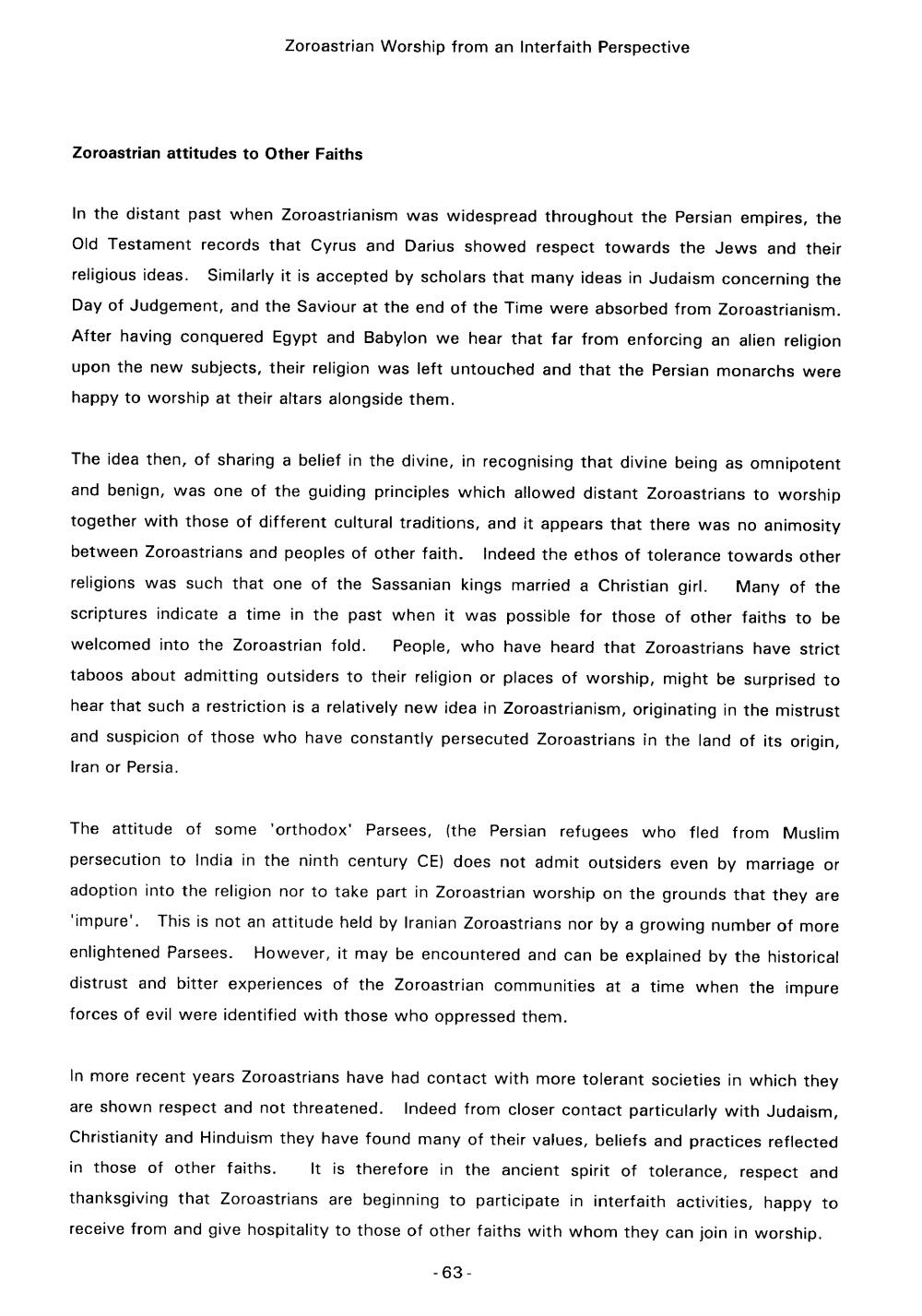________________
Zoroastrian Worship from an Interfaith Perspective
Zoroastrian attitudes to Other Faiths
In the distant past when Zoroastrianism was widespread throughout the Persian empires, the Old Testament records that Cyrus and Darius showed respect towards the Jews and their religious ideas. Similarly it is accepted by scholars that many ideas in Judaism concerning the Day of Judgement, and the Saviour at the end of the Time were absorbed from Zoroastrianism. After having conquered Egypt and Babylon we hear that far from enforcing an alien religion upon the new subjects, their religion was left untouched and that the Persian monarchs were happy to worship at their altars alongside them.
The idea then, of sharing a belief in the divine, in recognising that divine being as omnipotent and benign, was one of the guiding principles which allowed distant Zoroastrians to worship together with those of different cultural traditions, and it appears that there was no animosity between Zoroastrians and peoples of other faith. Indeed the ethos of tolerance towards other religions was such that one of the Sassanian kings married a Christian girl. Many of the scriptures indicate a time in the past when it was possible for those of other faiths to be welcomed into the Zoroastrian fold. People, who have heard that Zoroastrians have strict taboos about admitting outsiders to their religion or places of Worship, might be surprised to hear that such a restriction is a relatively new idea in Zoroastrianism, originating in the mistrust and suspicion of those who have constantly persecuted Zoroastrians in the land of its origin,
Iran or Persia.
The attitude of some 'orthodox' Parsees, (the Persian refugees who fled from Muslim persecution to India in the ninth century CE) does not admit outsiders even by marriage or adoption into the religion nor to take part in Zoroastrian worship on the grounds that they are 'impure'. This is not an attitude held by Iranian Zoroastrians nor by a growing number of more enlightened Parsees. However, it may be encountered and can be explained by the historical distrust and bitter experiences of the Zoroastrian communities at a time when the impure forces of evil were identified with those who oppressed them.
In more recent years Zoroastrians have had contact with more tolerant societies in which they are shown respect and not threatened. Indeed from closer contact particularly with Judaism, Christianity and Hinduism they have found many of their values, beliefs and practices reflected in those of other faiths. It is therefore in the ancient spirit of tolerance, respect and thanksgiving that Zoroastrians are beginning to participate in interfaith activities, happy to receive from and give hospitality to those of other faiths with whom they can join in worship.
- 63 -




